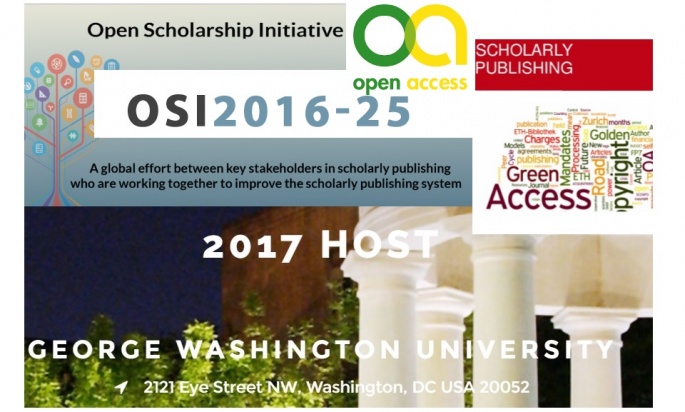Open Scholarly Initiative

.jpg)
The Open Scholarship Initiative (OSI) is an ambitious, global effort to establish high level dialogue and cooperation between key stakeholders in scholarly publishing who are working together to improve the scholarly publishing system.
_____________________________________________________________________________________________________
In 2015, the National Science Communication Institute (nSCI) convened and moderated an online conversation between 120 open access stakeholders, including many thought leaders in open access, publishing, and scholarly communications. This conversation, which began as the “Open Science Initiative,” resulted in the recommendations “Mapping the Future of Scholarly Publishing”, as well as a post-discussion partnership with UNESCO to expand this effort globally as the Open Scholarship Initiative (OSI) , broadening the focus both geographically and intellectually.
OSI is a multi-year, collaborative effort that brings together major stakeholders (publishers of all kinds, scholarly societies, funders, librarians, university administrators, etc.) in scholarly publishing from around the globe into a series of annual meetings to talk about increasing openness and transparency globally and to improve the ways in which research information gets published, shared and accessed.
# 100 Stories: The Impact of Open Access
- What is Publishing?
- What Is Open?
- Who Decides?
- What are the Moral Dimensions of Open?
- What are the Usage Dimensions of Open?
- How do Open Solutions evolve?
These and other connected issues were discussed during the Inaugural Open Scholarship Initiative Conference held in April 2016 at George Mason University, in collaboration with the National Science Communication Institute and UNESCO.
# The Workgroup Questions of OSI2016 were numerous and broad
# Proceedings from the inaugural OSI Conference (published under a Creative Commons license)
Decisions agreed to at the inaugural 2016 event will be revisited and refined at future annual meetings (the next one is OSCI2017) through 2025, with the goal of ensuring that solutions are practicable and widely adopted, and that new issues are regularly reviewed and “agreed-to solutions” are fine-tuned.
# OSI Conversations – Stakeholders blogs
# Read here all 2016 OSI outputs
Who benefits from the OSI?
Authors of research outputs | Would have increased opportunities to publish and create a community among researchers and writers around the world. This international recognition may also bring in outside funding, easing the financial burden of the universities and creating potentially long-term partnerships. |
Businesses and companies outside of academia | May establish partnerships with these authors, partnerships that may never have existed without expanded publication. |
Institutions
| Wider recognition of authors’ work automatically brings wider recognition (to the world outside of academia) to the institutions where they work and receive funding. Donations may also increase. Institutions will cut back on their funding for scholarly journals, which are essential to the quality and professionalism of student and faculty research. |
Students and researchers world-wide | When alumni see their alma mater being acclaimed in a variety of arenas (academic, business, popular media), they are more likely to feel proud of their school and to speak about it with others. |
All of this can serve as motivation for authors to publish more and for students to begin a career in professional academic writing.
OSI uses several listservs to facilitate conversations between OSI delegates and managers. Some of these are for planning purposes, and are private insofar as they may contain confidential information about OSI participants.
For further information please contact OSCI team.
_____________________________________________________________________________________________________
Source: OSI initiative.org
Read also: The Open Scholarship Initiative: Talking a Good Game

